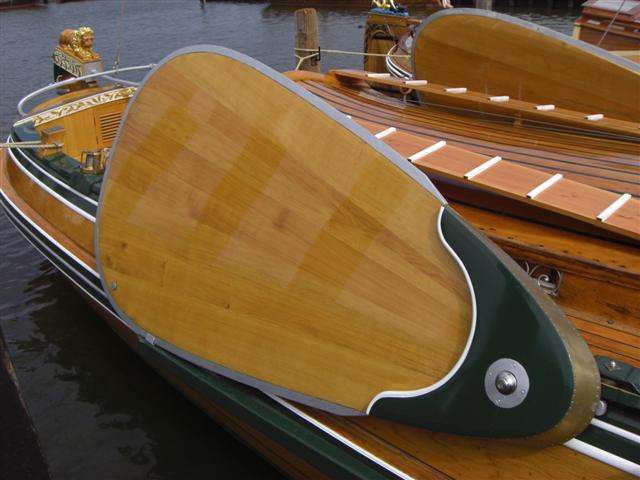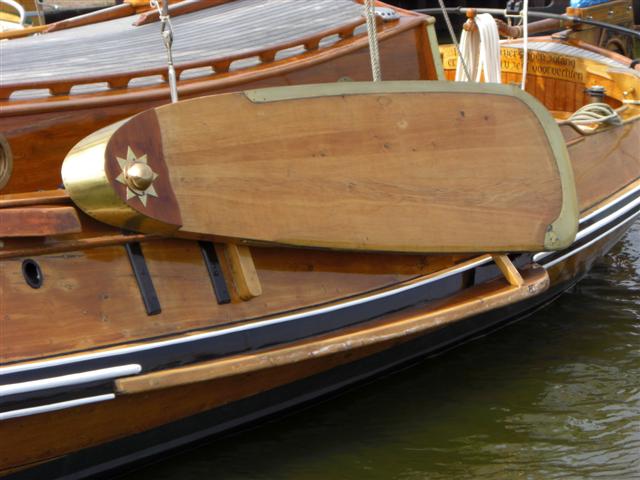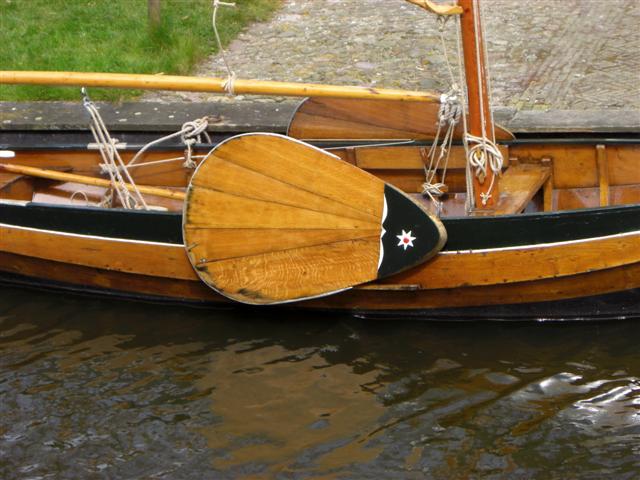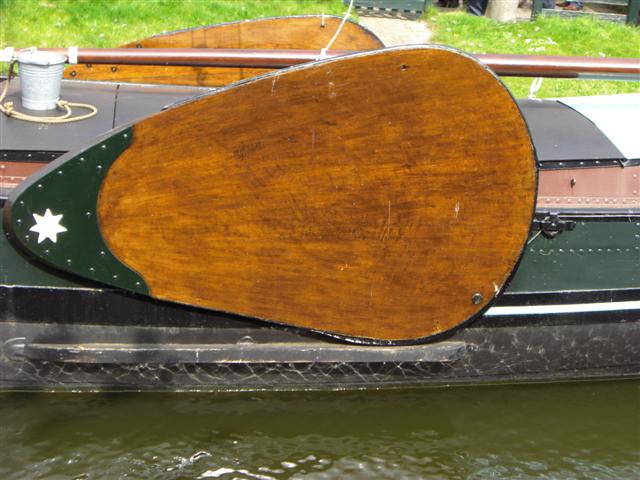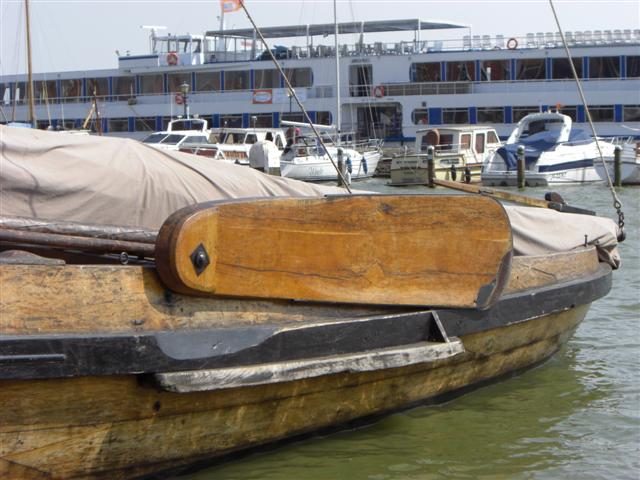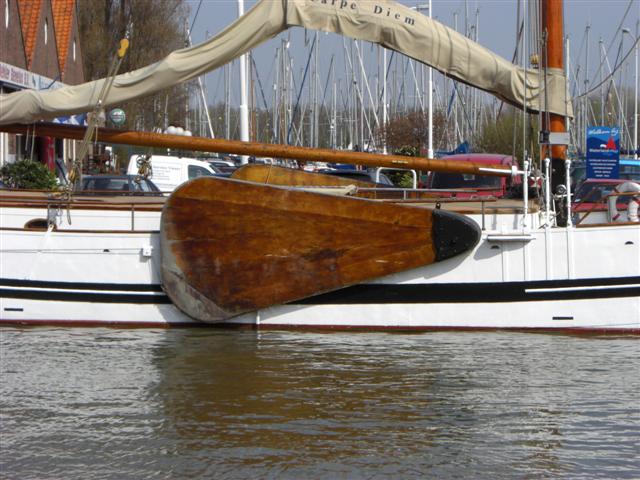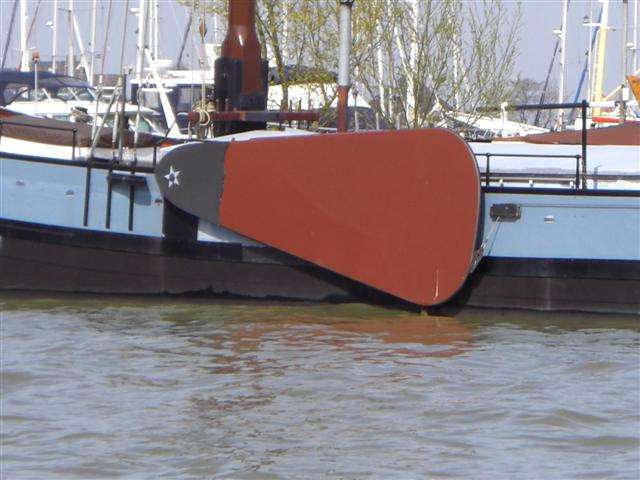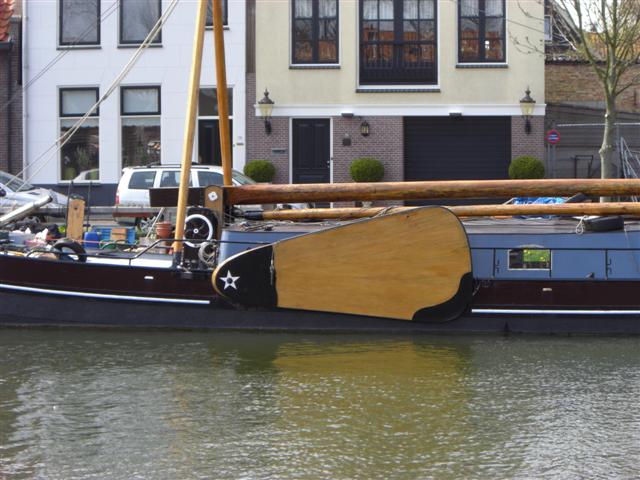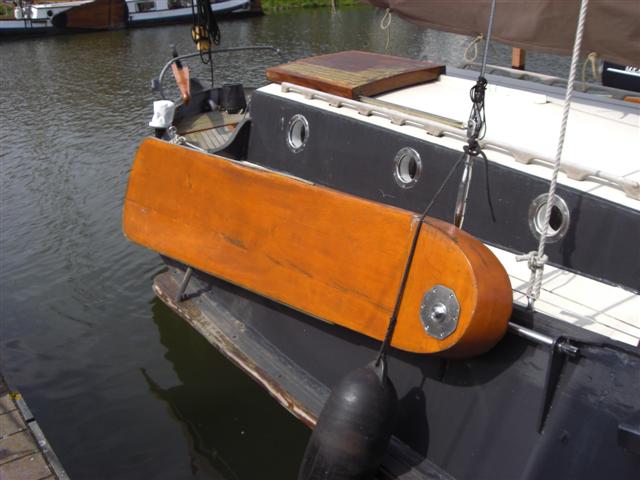Welcome to
LeeBoards dot com
Lee-boards are boards or plates that are attached to the side of
the hull
of a sailing vessel to reduce downwind drift.
|
Leeboards are important for reducing sideways drift and for sailing across or into the wind.
Leeboards basically are lifting foils used by sailboats. They function much like centerboards (or daggerboards), but are located on the leeward side of sailboats instead of under the center of the sailboat. The leeward side is used as that side allows the leeboards to dig into the water when the boat heels, as the sailboat will lean under the force of the wind.
Should your leeboard hit ground, unlike a centerboard, where your boat will come to a dead stop, the hull of the boat will do a spin around the leeboard when you ground it. Then it's a simple matter of pulling the leeboard up to be on your way.
Leeboards are for preventing or lessening leeway, not to assist in steering the sailboat.
Want to sail a boat that doesn't have a centerboard trunk? You can make a simple pair of clamp-on leeboards out of wood and clamp them over the gunwales (the upper edge of the side of a vessel). The leeboards generally pivot on a bolt so it can be balanced for sailing.
Lee-boards are similar to center-boards, but the lee-boards are mounted on each side of the hull. They can be pivoted down into the water to provide a shallow draft boat with lateral resistance, without relying on a center keel. The lee-board can be raised up out of the water to allow boats to pass through shoals, and increase the boats' speed when going downwind, when there is no need for lateral resistance.
Just like centerboards, the leeboards are ideally shaped to act as foils. The leading edge is best rounded, with the thickest part just forward of the middle. The rest of the leeboard then gradually tapering down to a thin flat edge at the back.
With small boats leeboard water tends to get trapped against the hull of the boat. Waves then can get squeezed in the passage between the boat and the leeboards and water can kick up into the air.
On most traditional leeboard designs, the windward leeboard is retracted when it isn't needed. Doing so tends to reduce drag. |
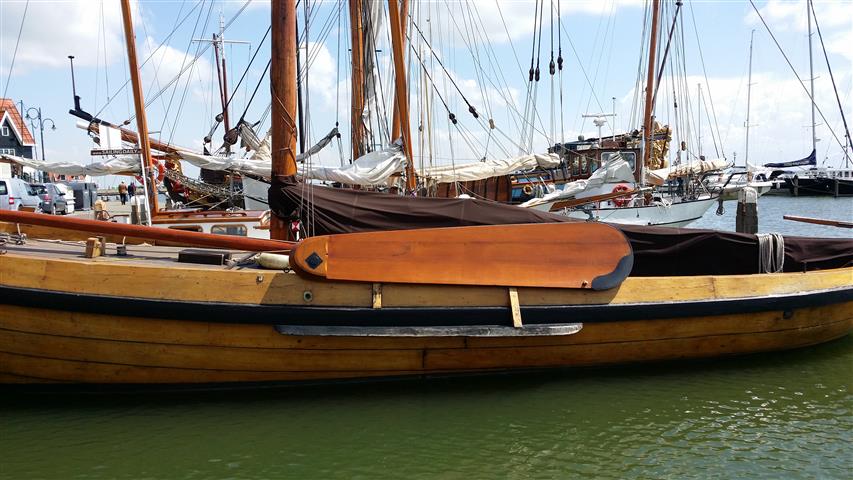
We hope that you'll send us pictures of other leeboards as well.


You can convert your kayak to a sailing vessel
- click here to read more about one project -
some questions from visitors of LeeBoards.com |
more questions
to see a gunboat with Leeboards (also help Roger for his upcoming book)
Grant's Leeboarder "Dragon" |
to Batavia longboat replica in Australia
to a Currach with Leeboards
to methods of attaching leeboards to hulls |
to how to build your own wooden leeboards (by Alick)
|
Send us your leeboard stories or projects to Vic at:
or
Please mail your pictures to: |
to Zuiderzee Botter
Much more is coming soon.
to some beginning leeboard education and information
|
Disclaimer: Always wear life preservers, drink and party responsibly, sail at your own risk, and please pass the word that leeboard sailing is now a blast from the past that will soon be in the news as being the latest sailing craze. |
